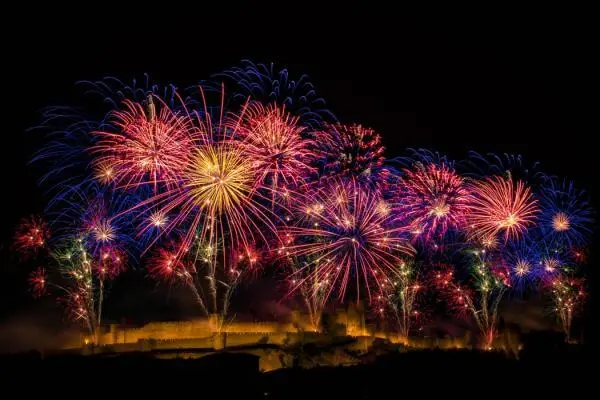Crimson Fest
A holiday to mask ones identity
The day and night when the last full moon of the month "Oniself" is present.
Present in all countries, but might not be present across all families.
Every town celebrates it, but typically the bigger and more populated towns will have more of a production and celebration, while the smaller ones let their people celebrate as they see fit.
Found across all groups but not all families
From the start of the day until the last meal of the day, a costume is worn by each individual. Only a portion of a persons name should be said, a full name should be avoided, or something else that can give away their identity. Most people spend the day outside and exchange food with others.
Mostly food. Depending on the culture or family, some might give tokens to protect against "unfavorable spirits"
Connection between others and forgoing of "bad energy" are the two main symbolisms of this holiday.
Food of all kinds are exchanged for this holiday. Usually it is some kind of traditional food, made for this one day a year.
Discussed in origins
The holiday takes place on a day that used to be referred as "The Crimson Day" because on this one day of the year, there was an unusually high number of deaths or strange occurrences. It was believed that this was the day the planar world would cross with the death plane and daemons would either try to possess people or get confused and accidentally killed them.
Daemons, however, cannot possess one whose identity they don't know and don't usually attack other daemons, so people started wearing costumes and avoided saying names to mask their identity. It worked quite well and the tradition started from there. After a short time, people started exchanging gifts of food, as a show of good fortune and to instill trust in one another, so that one could prove they weren't a daemon. The day then became known as "Crimson Fest."
Food usually got exchanged between neighboring families, but some went out of their way to ensure their friends and family got food from them personally. The food exchange soon came to be thought of as an extra measure of luck, for when a person is given a lot of food it shows that they are cared about by many others, and that care will protect them from daemons. Typically, it is seen as unfortunate when someone has little to no food.
The holiday changed in subtle ways. From the start of the day, a person puts on their costume, and will typically avoid names for the whole day. Then, folks spend their day outside with neighbors and friends and give food to each other. At the end of the day, people will gather in their home with any loved ones they have and enjoy a large feast from all the food they gathered that day, blessing themselves and blessing the ones who gave them the food.
The holiday continues that way for many, many years and people eventually forgot the origins of the holiday, most coming to think of the day as a fun reason to dress up and eat food. Either way, the traditions remain the same, and the holiday is celebrated by many.
None
